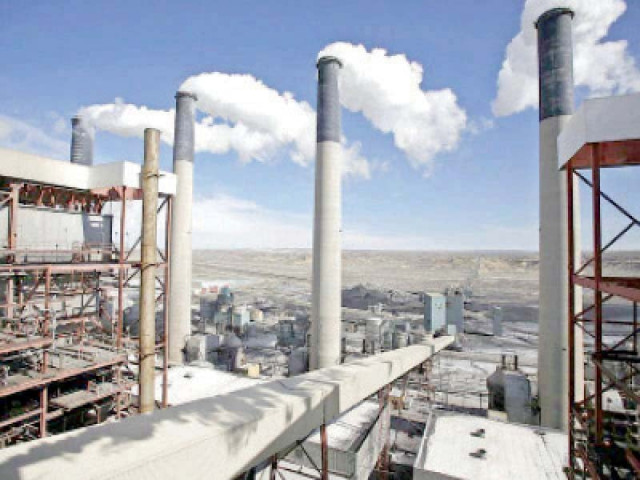OGRA cuts payment to gas producers
Insists decision encourages producers to timely apply for wellhead gas price notification

The Oil and Gas Regulatory Authority (Ogra) has directed gas utilities to cut provisional payments to gas producers by 25%, leaving exploration and production (E&P) companies high and dry.
In a letter to managing directors of the country’s two gas utilities, Ogra advised them that payments to producers of natural gas should be made strictly on the basis of price notifications.
“In case provisional payment is justified, it may be restricted to 75% of the last notified price till such time producers submit the requisite notification for the relevant period to the gas companies,” the letter said.
“It has been observed that payment, in respect of some producers, is made without prescribed document, inter alia wellhead price notification, leaving room for retroactive adjustment, which in case of such eventuality impacts consumers, resulting in economic distortion.”
Some E&P companies, like BP, have already pulled out of Pakistan apparently due to bureaucratic hurdles. Prime Minister Imran Khan has taken notice and announced several steps for one-window operation in a bid to encourage hydrocarbon exploration in the country.
State-owned E&P companies like Oil and Gas Development Company (OGDC) and Pakistan Petroleum Limited (PPL) are major producers of gas. These companies, in which the government is a major shareholder, have long been under pressure in the wake of a growing circular debt.
Withholding 25% of the payment to them, as well as private sector energy firms, will add to their miseries, say industry players.
The reduction in payments may also impact efforts to improve energy supplies as gas deficit is widening during high demand in winter, they say.
Industry players argue that such curbs will discourage the exploration of new hydrocarbon resources and put more burden of liquefied natural gas (LNG) import on the country.
Giving rate comparison, they say that domestic E&P companies receive a price of just $3-5 per million British thermal units (mmbtu) while LNG imports cost $15-30 per unit.
They believe Pakistan has still the potential to produce 200,000 barrels of oil per day and add 1.2 billion cubic feet per day to existing gas supplies by launching E&P activities in those areas of Khyber-Pakhtunkhwa, Balochistan and Punjab where oil and gas seepages are found.
Recently, in a major setback, two energy companies - Eni and Gunvor - backed out of an agreement with Pakistan LNG Limited (PLL) for the supply of two LNG cargoes in November because of rising prices in the international spot market.
Moreover, PLL has so far not received any bids sought for the supply of eight spot cargos - four each in December and January - as global LNG prices are perched at the highest level. Delay in supply of these cargoes will increase Pakistan’s gas deficit up to 600 million cubic feet per day (mmcfd), resulting in gas load-shedding for consumers.
Sources at the Petroleum Division said that price notification was the responsibility of Ogra itself and the regulator could not hold payments to the E&P sector.
Ogra defends move
“Ogra’s decision regarding provisional payment of 75% of previously notified price is neither cut in the sale price nor does it apply to the entire industry,” said an Ogra spokesperson when asked for comments.
Unfortunately, according to the spokesperson, some of the gas producers, wherever suits them, do not apply for the notification of gas price for years and they are paid on the basis of previously notified price.
“In order to streamline the regular wellhead gas price notifications, such instructions have been issued after due diligence,” the spokesperson said.
“The decision is not applicable to the gas producers who regularly and timely apply with complete documentation for the gas price notification 30 days prior to the start of each price notification period of six months.”
Such a decision in fact carries built-in incentives for the producers to timely apply for the wellhead price notification so that their cash flow stream remains intact and the ultimate consumers do not get any subsequent hit of price differential, the spokesperson said.
“There is absolutely no incentive for the gas producers to delay gas price applications except where previously notified price is expected to be higher than the current pricing period.”
The spokesperson emphasised that Ogra is mandated to carry out gas pricing in the downstream industry. “The aggregate of the wellhead costs paid to the gas producers forms the revenue requirement of the gas companies. Accordingly, for the sake of correct gas pricing and its impact on the consumers, Ogra’s intervention was inevitable to get the wellhead cost figures realistic and relevant to the current pricing period as far as possible.”
Published in The Express Tribune, December 5th, 2021.
Like Business on Facebook, follow @TribuneBiz on Twitter to stay informed and join in the conversation.



















COMMENTS
Comments are moderated and generally will be posted if they are on-topic and not abusive.
For more information, please see our Comments FAQ